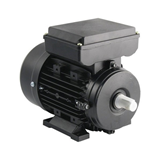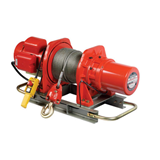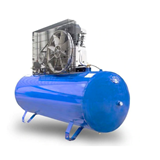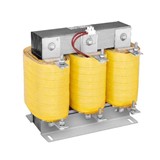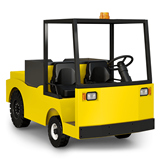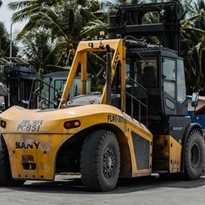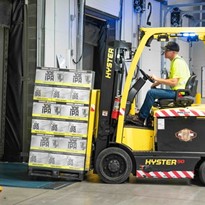When choosing the right forklift for indoor use, companies must consider the pros and cons of LPG (liquefied petroleum gas) and electric forklifts, as they affect efficiency and safety as well as long-term costs. Indoor environments present unique challenges, including strict regulatory compliance, limited space, and quiet zero-emission operating requirements.
This article discusses the key factors companies should consider when deciding between LPG and electric forklifts. It will help you make informed choices that fit your operational needs and sustainability goals.
Introduction to Electric Forklift
An electric forklift is a specific type of forklift that is powered by electric motors. Compared to traditional gas or diesel forklifts, they are modern, efficient, and environmentally friendly.
These forklifts are equipped with rechargeable batteries. Their quiet operation and zero emissions make them ideal for indoor areas and areas where air quality is a concern.
How Electric Forklifts Work
Electric forklifts use long-lasting lithium-ion or lead-acid batteries to power robust electric motors. These motors deliver exceptional power for smooth operation and precise control, efficiently handling heavy loads and lifts. Environmentally friendly and cost-saving, electric forklifts eliminate the need for fuel and minimise noise pollution, creating a safer and healthier work environment.
Electric Forklift Charging System
Forklifts are powered by lead-acid or lithium-ion batteries. Electric forklifts, operate quietly and efficiently, supply electricity to move and lift. Even though they operate without gas, they are just as powerful as a gas forklift.
Pros of Electric Forklifts
Here are some advantages to electric forklifts:
- Lower Operating Costs
Electricity is commonly cheaper than diesel or gasoline, resulting in lower running costs. Additionally, electric forklifts have fewer moving parts, which can reduce repair expenses.
- Reduced Emissions
Electric forklifts produce no exhaust emissions, making them perfect for indoor use and environments.
- Kinetic Energy Recovery Systems
This function converts kinetic energy lower back into electric energy throughout braking, helping recharge the battery and improving overall performance.
- Customisation
They can be tailored for specific uses, and advanced models might also include telematics systems for real-time tracking of automobile vicinity, usage, and overall performance records to improve fleet control.
Cons of Electric Forklifts
Consider the disadvantages of using electric forklifts:
- They're Expensive
Electric forklifts usually cost more upfront than gas or diesel models.
- Battery Charging and Replacement
Charging times can limit the forklift's availability, and battery replacement can be expensive.
- Battery Performance in Cold Environments
Batteries can perform poorly in freezing temperatures, reducing efficiency and operational time.
- Weight and Size
The addition of batteries can make forklifts heavier and take up more space, affecting their ability to move in small areas.
What is an LPG forklift?
LPG forklifts, also known as gas-powered forklifts, are multipurpose forklift trucks commonly used in the lifting industry, including industrial parks, manufacturing plants, warehouses, and LPG distribution centres. The forklifts are powered by gas stored in a small cylinder in the back of the truck. These forklifts are suitable for various applications and differ from diesel and electric counterbalance forklifts.
How do LPG forklifts work?
LPG forklift engines operate like car engines, using a four-stroke cycle (intake, compression, combustion, and exhaust) to generate power.
Forklifts use liquefied petroleum gas (LPG) instead of gasoline. The combustion moves pistons to rotate a crankshaft, powering the wheels and hydraulic pump. Unlike electric forklifts, LPG engines provide direct mechanical power. Both LPG forklifts and car engines rely on internal combustion.
Pros of LPG Forklifts
Here's why gas forklifts offer advantages:
- High power and torque
A gas-powered forklift is ideal for heavy lifting and transportation. LPG forklifts have a powerful engine and a torque converter that sends power to the transmission and wheels.
- Multipurpose materials
They work well indoors and outdoors, meeting various business and business needs.
- Cost-effectiveness
Gas forklifts are generally more cost-effective than electric or diesel forklifts, making them particularly advantageous for small businesses.
- Quick refuelling
Refuelling gas forklifts is a quick process that takes only a few minutes, saving time and increasing productivity.
- Reducing carbon footprint
Gas-powered forklifts produce fewer emissions than electric-powered forklifts that recharge with power-generated fossil fuel.
- Low noise levels
Gas forklifts are quieter than diesel vehicles, creating a more relaxed work environment.
- There are very low levels of smoke in the air
They produce less smoke than diesel forklifts, which helps improve indoor air quality.
- Refiling and recharge time
A gas-powered forklift can be fuelled quickly compared to an electric forklift. It can be done throughout a shift, depending on the tank size.
Cons of LPG Forklifts
Learn about the disadvantages of gas forklifts:
- Fuel Storage and Handling
Storing and handling LPG safely is crucial because of its pressurised and combustible nature. Special protection and training are necessary for safe use.
- Maintenance Costs
Fluctuating prices for LPG and the need to maintain propane cylinders and related equipment can increase maintenance costs.
- Fuel Availability
Fuel availability is a concern for LPG forklifts in remote locations. Dependence on deliveries of propane tanks can lead to disruptions if supply chains are unreliable.
LPG Forklift and Electric Forklift for Indoor Use
For indoor use, both LPG and electric forklifts have distinct advantages. LPG forklifts offer high efficiency, versatility, and fast refuelling, making them suitable for heavy tasks. This makes them ideal for indoor and outdoor use. Businesses must still consider safety measures, maintenance costs, and fuel availability.
On the other hand, electric forklifts offer lower operating costs, zero emissions, and customisation options for specific indoor applications. While there may be a lot of upfront costs and considerations when it comes to charging batteries and how they work in cold climates, they come with environmental benefits and cost savings in the long run.
In conclusion when choosing between LPG and electric forklifts for indoor use, consider operational needs, sustainability goals, and budget. LPG forklifts offer high power and quick refuelling but require attention to safety protocols and gas availability. Electric forklifts have low emissions and lower operating costs, but require charging infrastructure and have higher upfront costs.
Find Your Ideal Forklift!
Easily compare suppliers and find the best indoor forklift for your business's needs with IndustrySearch. Over 1.2 million buyers have used Get Quotes to fulfil their commercial machinery and equipment needs.
FAQs
What are the main factors to consider when choosing a forklift for indoor use?
When deciding between LPG (liquefied petroleum gasoline) and electric-powered forklifts for indoor use, companies must consider factors including operational efficiency, compliance, long-term costs, environmental impact, and infrastructure requirements for LPG or charging.
What are electric forklifts, and how do they work?
Electric forklifts operate on rechargeable batteries that power electric motors, which drive both movement and lifting mechanisms. These forklifts offer quiet operation and produce zero emissions, making them ideal for indoor environments.

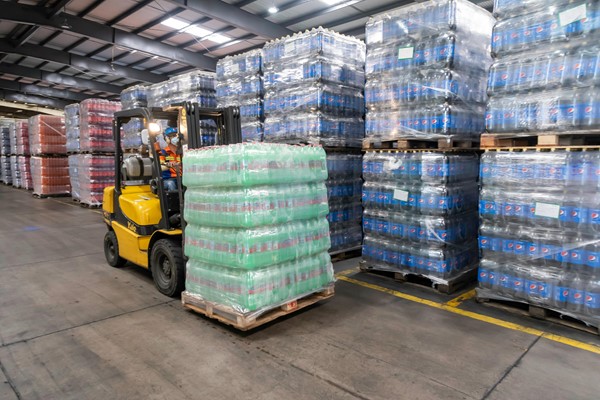
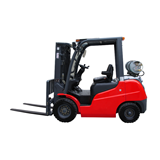

-160x160-state_article-rel-cat.png)
